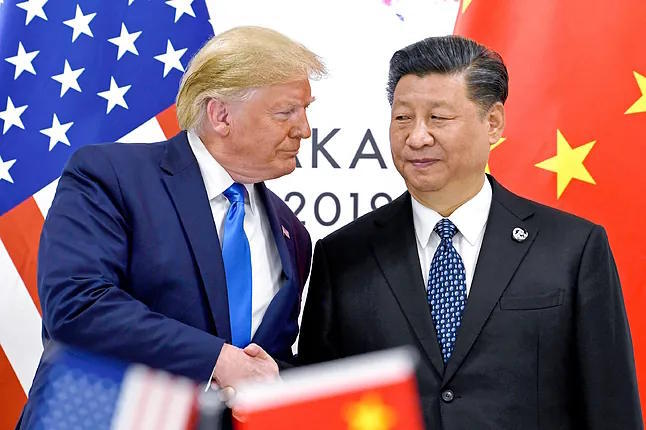Every move, every sanction, every word in a press conference is met with a calculated echo, coated with national pride and seasoned with a touch of bureaucratic vengeance. It could be said that the two great superpowers have refined the old tactic of tit-for-tat. If one blocks the supply of chips to suppress the technological development of its rival, the other responds by blocking the essential minerals needed to manufacture these chips. If one launches a precise blow in the form of tariffs, the other retaliates in the same way. It is an exchange of blows under the choreography of protectionism; a cold war of heated blows. Neither seems willing to back down.
"The economic and trade relations between China and the United States are once again at a crossroads," summarized the Chinese tabloid Global Times, one of the loud English-speaking voices of the ruling Communist Party, which reflected in its latest editorial the discontent in Beijing over the reactivation of a trade war with Washington, to which it blames for reigniting the conflict that had been dormant for months.
China warns that they will respond firmly if U.S. President Donald Trump follows through on his threat to impose additional tariffs of 100% on Chinese products. Chinese propaganda channels conveniently forget to mention that Trump's latest outburst came after Chinese authorities imposed new restrictions on the export of sought-after rare earth minerals last week. Although Chinese officials argue that this measure was taken after the U.S. placed more Chinese tech companies on its blacklist.
And this is how Washington and Beijing once again bring the justice of tit-for-tat towards a logic of punitive reciprocity, of mutual erosion. More than inflicting immediate harm on the adversary, it seems they seek to preserve a strategic dignity. "No blow will go unanswered," both Chinese officials maintain privately and publicly.
The negotiations in recent months seemed to have calmed tensions a bit. During the last meeting in September held in Madrid between the trade representatives of both countries, the trade truce reached last May was extended for another 90 days. On the horizon was the announced first face-to-face meeting between Trump and his Chinese counterpart, Xi Jinping. Both had agreed to meet on the sidelines of a regional summit to be held at the end of this month in South Korea.
Last Friday, when Trump announced that on November 1 he will impose a 100% tariff on China (in addition to the current 30%, but below the 145% with which he started the trade war against his major rival in April), he hinted that the meeting with Xi was in jeopardy after Beijing's "sinister and hostile" decision to tighten control over rare earths, essential in the production of magnets crucial for the development of both civilian and military technological goods.
However, Trump, as he usually does in his unpredictable turns, extended his hand to Xi in his own way. "I have an excellent relationship with China. Xi had a tough time, but he is a great leader, a very strong, very smart man," he said early Monday morning aboard Air Force One en route to the Middle East.
A few hours before that comment, the Chinese Ministry of Commerce had promised tough retaliations against Trump's latest tariff threat, accusing Washington of derailing the trade dialogue between the two powers. "Don't worry about China, everything will be fine! The respected President Xi has just gone through a tough time. He does not want a (trade) depression for his country, and neither do I. The United States wants to help China, not harm it!" the Republican later wrote on Truth Social.
Beijing, which dominates the global supply of many critical minerals and has almost a monopoly on rare earth processing, has been playing this winning card, holding its ground against the U.S. throughout the trade war. Analysts argue that in Washington, they did not anticipate the latest export restrictions on crucial elements, which will come into effect on November 8, and also cover certain types of lithium batteries and the equipment used for their production.
This is in addition to the announcement on Friday of an antitrust investigation against the U.S. chip manufacturer Qualcomm, which came after the U.S. added 15 more Chinese companies to its restricted trade blacklist for allegedly assisting Iran in acquiring U.S. electronic components.
Trump had also threatened Chinese airlines with banning them from using Russian airspace on routes to the U.S., while Chinese authorities are in the midst of a campaign of restrictions against another U.S. semiconductor giant, Nvidia, and have announced a "special port fee" for U.S. vessels, a measure similar to what the U.S. had already taken against Chinese ships.
On Tuesday, in this maritime dispute, Beijing retaliated with more sanctions against five U.S. subsidiaries of Hanwha Ocean, a major South Korean shipbuilder accused of cooperating with Washington in its restrictions against the Chinese maritime sector.
